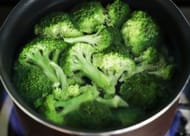Smelly farts are not as uncommon as one would think. Abdominal gas is a normal and even healthy part of the digestive process. The typical human passes gas throughout the day. It's not unusual for a fart to be particularly stinky or odorless. Both fall within the range of what society accepts as typical.
In this article, we'll investigate the causes of gas with a bad odor and the possible symptoms that may accompany it. Various available treatments will also be discussed.
Causes of smelly farts

There are many causes of smelly gas. Due to the wide variety of potential causes, determining the source of smelly farts is not always straightforward.
Most cases of unpleasant flatulence can be traced back to something eaten, whether it's food or medicine. Meanwhile, there are some causes that could point to a more serious health issue.
1) Intolerance to certain foods

To put it simply, a lot of people experience smelly farts for reasons of food intolerance. Lactose and gluten intolerances are common causes of unpleasant flatulence.
Having trouble digesting lactose or gluten can lead to bloating and gas and vice versa. If you are intolerant to these things, foods that can make you fart smelly are more likely to contain lactose or gluten.
Food intolerance can also be caused by medical conditions, like celiac disease. Anyone who has reason to believe they have a food allergy or intolerance should get tested for it by a medical professional. That will aid in pinpointing the root of the problem and identifying the offending ingredients in food.
2) High-fiber foods

The digestive system has a tough time processing high-fiber foods. These foods are great for people's health and wellness as a whole, but they break down or ferment in the digestive tract, which can cause discomfort. Odorous gases are released during the fermentation process.
Some high-fiber foods have a unique flavor or aroma. Because of their inherent odor, these foods can also contribute to unpleasant flatulence. Examples of such foods are broccoli, cabbage, radish, asparagus and garlic.
The sulphur content of high-fiber foods tends to be higher than that of other groups. As sulphur has a strong odor, these foods can alter the chemical composition of a person's farts, making them smellier.
3) Medications

Some medications, when digested, can result in smelly farts. Antibiotics are a common offender. Antibiotics work by destroying infectious microorganisms in the body, but they may also kill off some of the beneficial bacteria in the digestive tract.
There's a disruption in the digestive system when the beneficial bacteria are eliminated. Due to imbalance, the individual may start to fart excessively. Constipation and bloating are two unpleasant side effects of having too much gas in the body.
4) Bacteria and infections
Nutrients from food are metabolized in the digestive system and absorbed into the blood. It also generates waste that's excreted via the colon. The gut's resident good bacteria is one of the many crucial factors in this process.
There can be times when the level of bacteria in the digestive tract become unbalanced, which can cause an infection. These infections commonly cause smelly farts, gas, abdominal pain, or in severe cases, even diarrhea.
Home remedies for smelly farts
Flatulence is often treatable with home remedies for bad smelling gas. Check out the following home remedies you can employ as treatments for smelly farts:
1) Drinking warm liquids
Excess gas pain and discomfort can be alleviated by drinking plenty of fluids, which helps move the gas through the digestive system. Consumption of gas-inducing carbonated beverages can be avoided by switching to flat drinks.
Some people find that drinking a warm beverage like water or herbal tea can help relieve their aches and pains.
2) Eat ginger

It's common knowledge that ginger root can aid digestion. It's possible to consume the root in very small quantities or to use it to make ginger tea. Ginger can be purchased in the form of candies, drinks and even dietary supplements.
3) Avoid trigger foods
For some people, eating foods that contain lactose or gluten and certain cruciferous vegetables like broccoli or cabbage can be a trigger for smelly farts. If you have identified any such triggers, you can avoid eating these foods in particular.
4) General tips

In general, avoiding greasy and spicy foods, caffeinated or carbonated beverages, artificial sweeteners, contaminated foods and foods that cause allergies can help prevent too much gassiness.
Is smelling farts good for you?
Believe it or not, research suggests that hydrogen sulphide, the main component of smelly farts, may have health benefits for humans, including the prevention of heart disease and kidney failure.
Bad flatulence is not always a cause for alarm. Many people who suffer from excessive flatulence discover that simple dietary can adjustments alleviate the problem.
If your farts smell so bad despite avoiding specific foods or medications, you may benefit from seeking professional medical advice and care. The presence of additional symptoms suggests an infection that may require medical attention.
Once the cause of a person's flatulence is determined and treated, the person usually experiences improvement in their symptoms.
